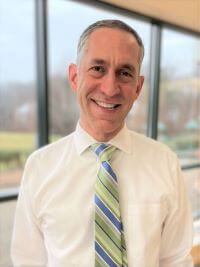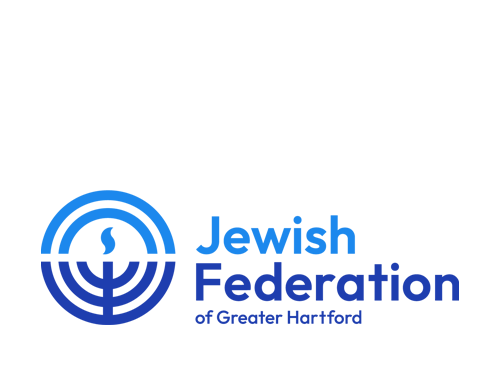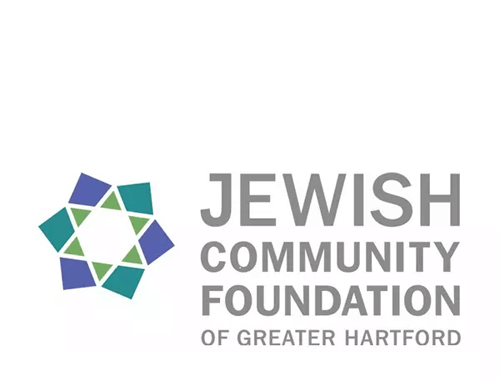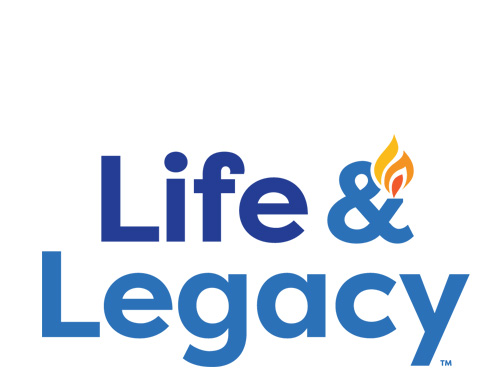- about
- academics
- current parents
- student life
- Prospective Parents
- Donate
Schechter Shavua: January 13, 2023
Prickly Rice and Other Sensory Activities Stimulate Cognitive Development
Why would a two year old stick her hands in a pile of shaving cream? The answer is that - other than for fun - sensory activities like shaving cream help with cognitive growth (for example, trying new things that might not be comfortable) and cause and effect (scientific exploration and experimenting with different matter and its properties). In addition, these Nitzanim(EC2) students are strengthening their fine motor skills needed for writing, and developing emotional expression.
First, they explored different textures using shaving cream. Each child started with their initials written in shaving cream on a tray. They explored this fluffy and smooth texture with their hands or a plastic spoon. Some children loved this sensation, immersing themselves in the shaving cream up to their elbows, while others gingerly touched the shaving cream with a finger or the spoon. Another day, students explored bins of rice, scooping it up and pouring it through funnels of different sizes. They also did a sensory art project, gluing colored rice onto cardboard. For this activity, fine motor skills came into action as the children first painted glue on a piece of cardboard, then spooned some colored rice onto the glue. A favorite moment came after the rice was piled high on their cardboard canvases, when Bonnie and Linda helped them dump off excess rice to see what stuck.
Click HERE to see EC2’s sensory activities.
Learning Hallel Sparks Connection
 Alim students (grades 3-4) are learning to lead Hallel in preparation for their special Rosh H odesh program later this month! Hallel, a collection of psalms focused on gratitude, is sung during services on multiple holidays, at the Pesach Seder, and on every Rosh Hodesh (new month). Rabbi Berger has been visiting Alim twice a week for two months to teach them spirited melodies and help them understand what the poems are all about. One morning, Rabbi Berger posed questions to the students about similar language that appears in different prayers; the students could barely contain their enthusiasm as they contributed to the discussion. They are discovering that they can all be leaders, connecting with God and the Jewish tradition, and creating joy through song.
Alim students (grades 3-4) are learning to lead Hallel in preparation for their special Rosh H odesh program later this month! Hallel, a collection of psalms focused on gratitude, is sung during services on multiple holidays, at the Pesach Seder, and on every Rosh Hodesh (new month). Rabbi Berger has been visiting Alim twice a week for two months to teach them spirited melodies and help them understand what the poems are all about. One morning, Rabbi Berger posed questions to the students about similar language that appears in different prayers; the students could barely contain their enthusiasm as they contributed to the discussion. They are discovering that they can all be leaders, connecting with God and the Jewish tradition, and creating joy through song.
Favorite Illustrators are Role Models for Using Colors and Textures
 Before winter break, Kindergarten students learned about illustrators in art class. Students examined Marcus Pfister’s illustrations from the well-known book, Rainbow Fish. They learned about color value scales and painted a background for their fish that transitioned from dark to light. On top of those backgrounds, students layered seaweed and sand before adding their beautifully decorated fish. Next, students immersed themselves in the colorful world of Eric Carle, painting tissue papers in a variety of colors and textures. Students used these papers to make their own caterpillars or butterflies as they gained an appreciation of vibrant colors in art.
Before winter break, Kindergarten students learned about illustrators in art class. Students examined Marcus Pfister’s illustrations from the well-known book, Rainbow Fish. They learned about color value scales and painted a background for their fish that transitioned from dark to light. On top of those backgrounds, students layered seaweed and sand before adding their beautifully decorated fish. Next, students immersed themselves in the colorful world of Eric Carle, painting tissue papers in a variety of colors and textures. Students used these papers to make their own caterpillars or butterflies as they gained an appreciation of vibrant colors in art.
Shemot 5783 — Moses’s Unfulfilled Hopes
 We’ve all been in the position of requesting something big, knowing the answer may be “No,” but unable to stop hoping for a “Yes.” And waiting for the answer can feel like torture! According to one interpretation, this is how Moses felt — at the burning bush.
We’ve all been in the position of requesting something big, knowing the answer may be “No,” but unable to stop hoping for a “Yes.” And waiting for the answer can feel like torture! According to one interpretation, this is how Moses felt — at the burning bush.
The Torah indicates that Moses had a speech impediment. When telling God that he can’t serve as a prophet, Moses says “kh’vad peh u-kh’vad lashon anokhi,” which means something like “I am clumsy with my mouth and tongue.” Speech problems typically develop early; whatever this impediment was, Moses had probably been living with it since childhood. He may have prayed for a cure when he was young, but by the time he reached adulthood, he was probably resigned to his condition.
At the burning bush, though, Moses encountered a God who seemed all-powerful. God turned Moses’s staff into a serpent, gave Moses leprosy, and then cured it. Seeing these miracles, Moses must have felt that God could do anything! It is at that point that he raises one more objection: “I am not a man of words; my mouth and tongue are clumsy.”
To some commentators, Moses is just raising challenge after challenge because he truly doesn’t want to go. To Abraham ibn Ezra, though, Moses was delicately asking God to cure him of his speech impediment. Couldn't the One who cures leprosy also heal a lisp or a stammer? Maybe Moses thought that just like the Israelites would be freed from slavery, he too would be delivered from his disability.
Once Moses realized that God had no plans to cure him, he gave up, saying, “Send whomever you wish to send.” Without a cure, he couldn’t imagine how he could do the job! But God had another answer: “Your brother Aaron will go with you.” Instead of curing Moses, God gave him the support he needed. Aaron’s strengths matched Moses’s weaknesses.
And so it is with us and our own weaknesses. Sometimes, we can strengthen ourselves and make our deficiency disappear — but often, we do best by finding a partner who is strong where we are weak, and vice versa. May we always surround ourselves with people who can help us — and may we be willing and humble enough to ask for help!
Shabbat shalom,
Rabbi Jonathan Berger
Head of School
Questions for the Shabbat table:
1. Why was speaking ability so important to Moses?
2. When have you been able to improve an area of personal weakness or challenge? When have you instead found someone else whose strengths complemented your weaknesses? What is better about each approach?
Solomon Schechter Day School
of Greater Hartford
26 Buena Vista Road
West Hartford, CT 06107
© Solomon Schechter Day School of Greater Hartford | Site design Knowles Kreative




